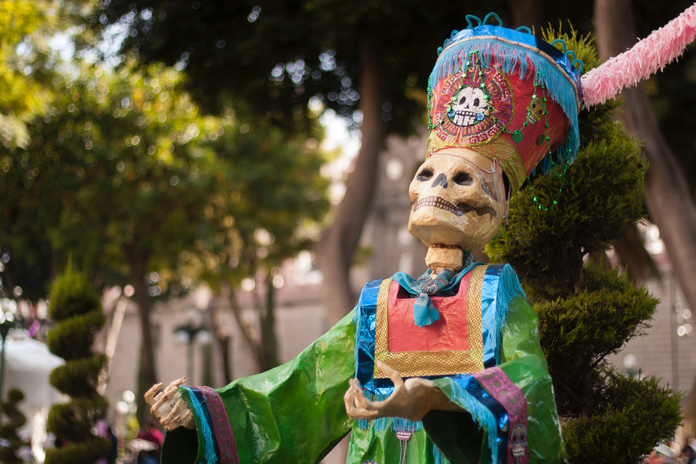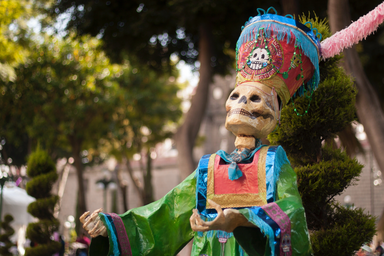Last weekend, I was reminded of the beauty of El Día de Los Muertos (The Day of the Dead) when my roommate and I landed on Coco as our choice for movie night. Throughout watching the movie, I found myself realizing how similar it was to another movie I love, The Book of Life. That thought then sent me down a rabbit hole of wondering why it seemed like, in relatively recent years, so many of these types of movies surrounding Mexican culture (specifically El Día de Los Muertos) were coming out of Hollywood.
El Día de Los Muertos, often mistakenly associated with Halloween, is a meaningful celebration that pays tribute to the deceased. In Mexico, it’s one of the most important celebrations they have, with roots dating back thousands of years, long before Spanish settlers.
It’s an intimate few days, mainly Nov. 1 and 2 (though the days leading up to it are also part of the holiday), that are spent among family. Together families build ofrendas (altars) to commemorate loved ones, adorn streets and restaurants with sugar skulls and brightly colored tissue paper, tell stories of those who have passed amongst the living to keep their memory alive, and so much more. It’s truly a celebration full of life that honors the dead.
One of the key aspects surrounding Hollywood’s fixation with El Día de Los Muertos (and generally making movies using a particular culture as the foundation for storytelling) is the thin line between cultural appreciation and appropriation. In the past, it tended to teeter on the very edge of that line.
When handled with the utmost respect and authenticity, such films can bring attention to the culture in question, educating audiences and fostering cross-cultural understanding. However, the danger lies in misrepresentation or simplification, which can lead to cultural stereotypes. Being Hispanic myself, specifically Colombian, I know the feeling of Hollywood stereotyping my culture and profiting off of it (*insert every movie or show about Pablo Escobar and the Cartel or any jokes about how dangerous the country is*).
Because of this, before watching those movies or shows, I believed ones like Coco or The Book of Life were just that: Hollywood’s way of milking culture and tradition for all their worth and dumbing them down in the hopes of making a dollar. I mean certainly, movies targeted for kids couldn’t possibly capture the complexity, intricacy, and magnitude of the holiday… or could they?
To my surprise, I’ve found myself captivated and enchanted by the rich portrayal of Mexican culture that Coco and The Book of Life provide time and time again. They are anything but simple. They can take a complex, important celebration that encompasses the greatest attributes of Mexican and Latinx culture — family, food, music, and all — and wrap them in deeply moving stories that are personal, imaginative, visually stunning. They never get old no matter how many times you watch them (easily 10+ times each).
But you don’t even need to take my word for it. According to Mexican artist Carlos Aguilar, Coco did it right. He raved about the movie, saying it felt like an “authentically Mexican work of art” and essentially praising it for its ability to honor a culture’s rich traditions without having to resort to clichés. Coco features an all-Latinx cast, and The Book of Life was directed by a Latinx person. They’re love letters to Mexico and most importantly from Mexicans.
While the movie industry still has a way to go, it’s encouraging to watch them continue to make strides in the right direction by including actual people from respective cultures and having them play the main roles. The Book of Life, which came out only nine years ago, doesn’t contain solely Latinx voices despite it being directed and produced by two Mexican natives. But it’s clear with the success of Coco and even Encanto now, that the industry has finally cracked the code. The only way to honor a culture, have diverse storytelling, have true representation, and correctly appreciate a culture rather than appropriate is to amplify the voices of the people that make up the culture. “Ya era hora,” I say.
Want to see more HCFSU? Be sure to like us on Facebook and follow us on Instagram, Twitter, TikTok, and Pinterest!


